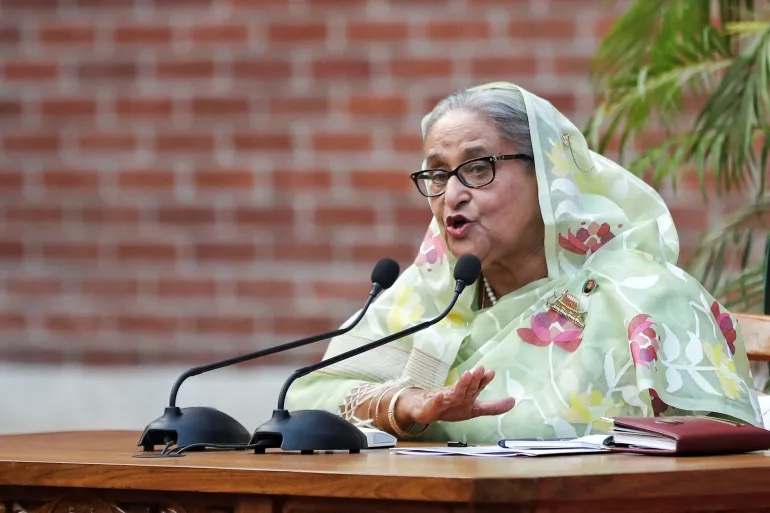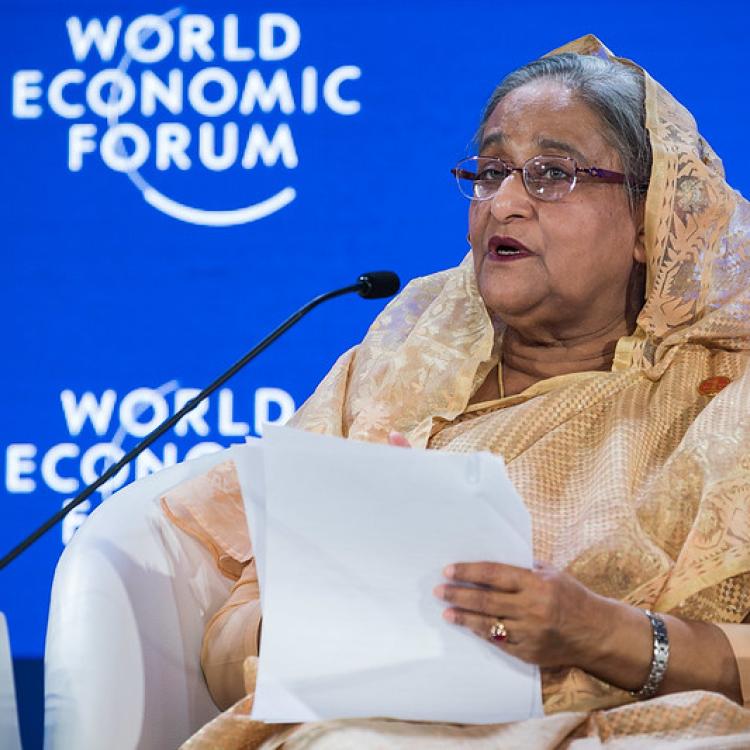
Bangladesh’s International Crimes Tribunal issued an arrest warrant last week for former Prime Minister Sheikh Hasina for “crimes against humanity” stemming from mass killings during protests against her government earlier this year.

Photo by Mohammad Ponir Hossain
Bangladesh’s International Crimes Tribunal issued an arrest warrant last week for former Prime Minister Sheikh Hasina for “crimes against humanity” stemming from mass killings during protests against her government earlier this year.
The protests originated in response to a decision by Bangladesh’s Supreme Court, which saw the revival of a quota system that awarded 56% of civil service jobs to the descendants of those who fought in Bangladesh’s independence war. Whilst the decision was later scrapped, the protests morphed to encompass a wide range of issues, with an estimated more than 1,000 demonstrators killed.
The protests ultimately forced Hasina to resign and flee to India. However, the warrant now orders Hasina’s arrest and attendance in Bangladesh court on 18 November.
Under Hasina, Bangladesh sought deeper ties with Sri Lanka. In June she met with Sri Lanka’s Presiden to discuss deepening investments in tourism and in the aftermath of Sri Lanka’s economic crisis Bangladesh provided the country a currency swap of $200 million. In 2022, Bangladesh’s Foreign Minsitry also opposed a UN resolution on Sri Lanka, which sought to advance accountability, by claiming it was “politically motivated”.

